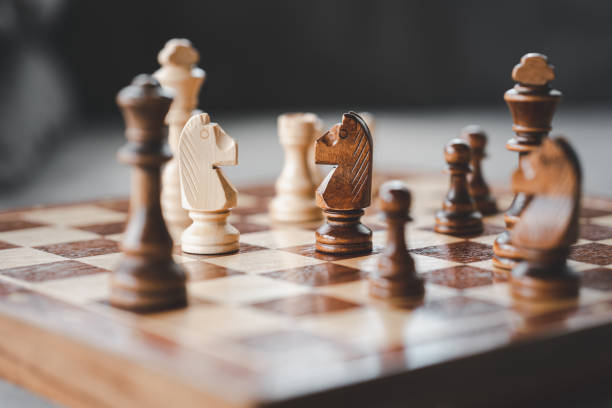Breaking Down the Intricacies of Chess Boxing: A Game of Power and Intellect
Chess boxing, a hybrid sport that combines the physical demands of boxing and the intellectual prowess of chess, has been intriguing athletes and spectators alike since its inception. This sport offers a fresh, unique, and up-to-date perspective within the sports category. It's not just a test of physical strength but also a real challenge to the mental acuity of its players.

Merging the Rings and Boards: The Emergence of Chess Boxing
The birth of chess boxing can be traced back to the early 1990s. The brainchild of Dutch performance artist, Iepe Rubingh, the sport was initially conceived as an art performance before quickly developing into a competitive sport. The idea was inspired by a science fiction comic book, which depicted a world where chess and boxing were intertwined in a single game.
Since its inception, chess boxing has grown significantly, gaining recognition in numerous countries worldwide. The World Chess Boxing Organization (WCBO) was established in 2003, further cementing the sport’s legitimacy and promoting its growth.
Chess Boxing Today: A Symbiosis of Brain and Brawn
Chess boxing matches are a true spectacle—players alternate between rounds of chess and boxing, starting with a four-minute round of chess followed by a two-minute round of boxing. This alternating pattern continues until a winner is declared—either by checkmate, knockout, or points.
The current trend in chess boxing leans towards the development of the athlete’s physical and mental fitness. Training involves not only physical conditioning and boxing techniques but also a rigorous focus on chess strategies. This has led to an influx of athletes from various backgrounds, including professional boxers, MMA fighters, and chess masters, who see the sport as a new challenge.
Benefits, Challenges, and Real-world Applications
Participating in chess boxing provides a unique set of benefits. It cultivates both physical strength and endurance and enhances cognitive skills such as strategic thinking and decision-making under pressure. However, the sport also presents unique challenges—participants must possess a high level of competency in both boxing and chess, and the transition between the two disciplines during a match can be mentally taxing.
Despite these challenges, the real-world applications of the skills honed in chess boxing are vast. The ability to think critically under pressure and maintain physical endurance is advantageous in various professional fields, including the military and emergency services.
The Science Behind Chess Boxing
Every aspect of chess boxing is underpinned by sports science. Research has shown that the combination of a physically demanding sport like boxing with the intellectual challenge of chess results in a unique cognitive load. This kind of dual-task training can enhance cognitive function and potentially delay cognitive decline, making chess boxing not only an exciting sport but also a tool for cognitive health.
The Future of Chess Boxing
The future of chess boxing looks promising. As new training methods and strategies continue to evolve, the sport is likely to attract more participants. Its unique blend of physical and mental challenges makes it a compelling option for athletes seeking a new kind of competition.
Chess boxing is a fascinating example of the innovative ways sports can evolve. By combining the physicality of boxing with the intellectual rigour of chess, it challenges competitors in uniquely comprehensive ways, proving that versatility is the key to the future of sports.






